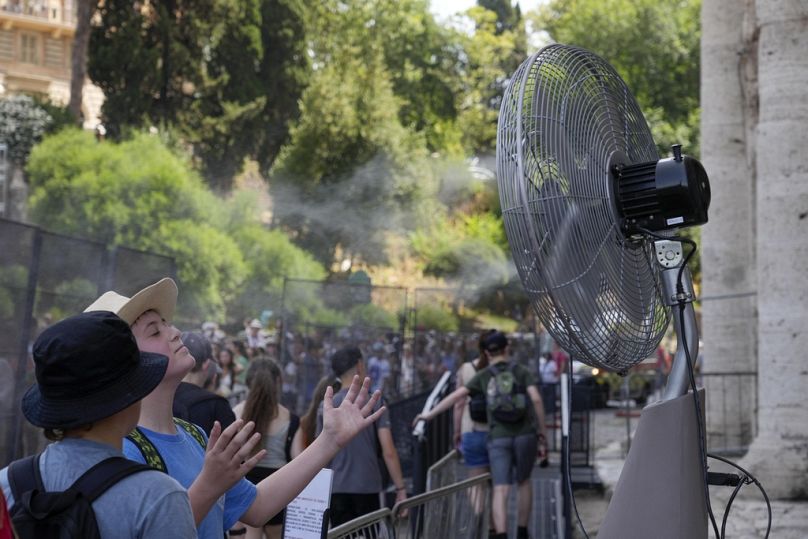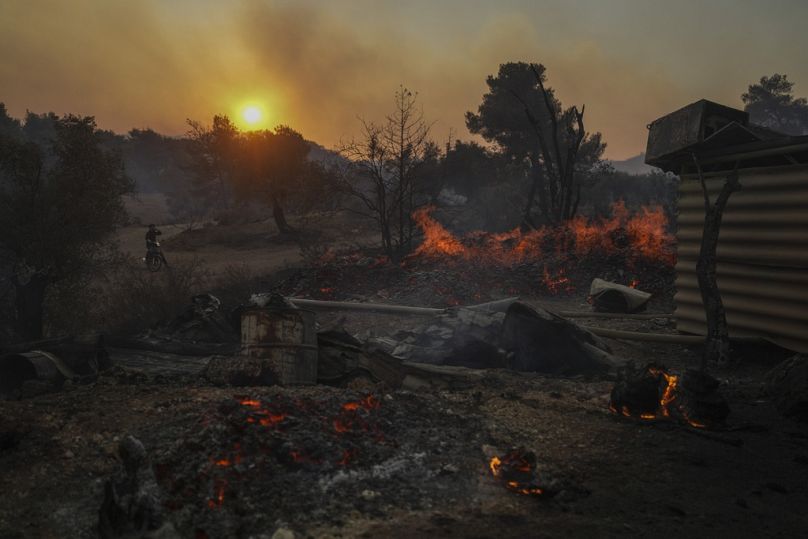The upcoming COP28 is an opportunity to stop climate finance from being a bone of contention and to turn it into a chance to build a better, more resilient world, Dr Nina Seega writes.
“Fixing climate finance” is one of the four areas outlined by COP28 President Designate Dr Sultan Ahmed Al Jaber as a burning priority of the international climate summit that will take place in Dubai this December.
 ADVERTISEMENT
ADVERTISEMENT
 ADVERTISEMENT
ADVERTISEMENT
Instead of arguing about how much wealthier nations should pay to help poorer countries transition to clean energy and better cope with the impacts of climate change, Al Jaber must focus attention on aligning all financial flows with a sustainable future.
And he should be clear about that from the outset.
The richer nations of the world have finally — three years too late — reached the goal of providing those in most need with €100 billion in climate financing a year, announced French President Emmanuel Macron at last month’s Summit for a New Global Financial Pact in Paris.
Better late than never. But this obsession with a single number means the bigger financial picture has been given far too little attention.
Big numbers, ridiculously small amount
This amount of money is also ridiculously small in the face of the challenge at hand. In 1948, the US delivered the equivalent of 6.5% of its GDP over four years to help countries rebuild after World War II.
Most developed countries spent around 5% of their budget on measures related to the COVID-19 pandemic. In comparison, €100bn is just over a tenth of a per cent of the budget of the richest countries. Meanwhile, in 2022, global military spending topped €2 trillion.
The International Energy Agency estimates that to meet its scenario of keeping warming below 1.5C, we need to think in military terms — that is, in terms of trillions, not billions, of euros.
The annual clean-energy investment must triple by 2030, reaching $4.2tn (€3.8tn), with around $1.8tn (€1.64tn) going to emerging and developing countries, says the agency.
The UN says climate adaptation in developing nations alone will cost between $160bn (€145.5bn) and $340bn (€309bn) a year by 2030.
Imagine if climate change was a foreign enemy
Imagine for a moment the world was at war against a foreign enemy that threatened to burn down huge swathes of forest, release torrents of raging water to destroy homes and increase the temperature of the earth so people could no longer step outside during the day for fear of dropping down dead from the heat.
How much money would governments then be prepared to spend to defeat this enemy? The budget would most likely be endless.
Yet, this is the very challenge we face. This is what is happening right now across the globe.
By July 7, more than 9 million hectares of forest in Canada had burned since fires broke out this spring.
In Zaragoza, people were forced to take refuge on their car roofs as torrential rain swept them away, while elsewhere in the country, land temperatures reached 60C.
Workers across China have been told to limit outdoor work as temperatures reach 40C, while North Africa and Southern Europe are facing a second record-breaking heatwave in a month.
In fact, that enemy is us
A foreign enemy is not responsible for these catastrophes; we are — every single one of us.
We can argue over who is most to blame and who should pay for the damage caused.
But time is of the essence, and politicians, and the private sector, need to stop bickering and agree on a direction of travel.
They need to agree that the transition to a clean, more sustainable economy and society is happening and consent to phase out fossil fuels and shift financial flows away from oil, coal and gas and towards cleaner solutions.
In practical terms, this would mean not agreeing to yet another woefully inadequate single goal at COP28.
Instead, governments would consent to align global financial and fiscal flows with the outcome goals and targets of the climate summit, such as was agreed for biodiversity at COP15 in Montreal last December.
If world leaders are not ready for such a proposal, a second option would be to at least separate climate finance into two, with one figure for mitigation and one for adaptation.
Money should not be an issue
It would also mean adopting the “do no significant harm” principle across financial flows, as the EU is suggesting, and adopting a single global taxonomy, eliminating the potential for taxonomy arbitrage between different jurisdictions.
Pension funds would become aligned with the Sustainable Development Goals to ensure the long-term prosperity of their beneficiaries — in OECD countries alone, that would unlock €43.6tn of funds.
In the insurance industry, climate and nature would be included in all underwriting decisions — there is no insurance on a 3C warmer planet. And banks would help transition every client.
In short, Al Jaber has the opportunity at COP28 to stop climate finance from being a bone of contention and to turn it into a chance to build a better, more resilient world.
Dr Nina Seega is the Director of Sustainable Finance at the University of Cambridge Institute for Sustainability Leadership (CISL).
At Euronews, we believe all views matter. Contact us at view@euronews.com to send pitches or submissions and be part of the conversation.














